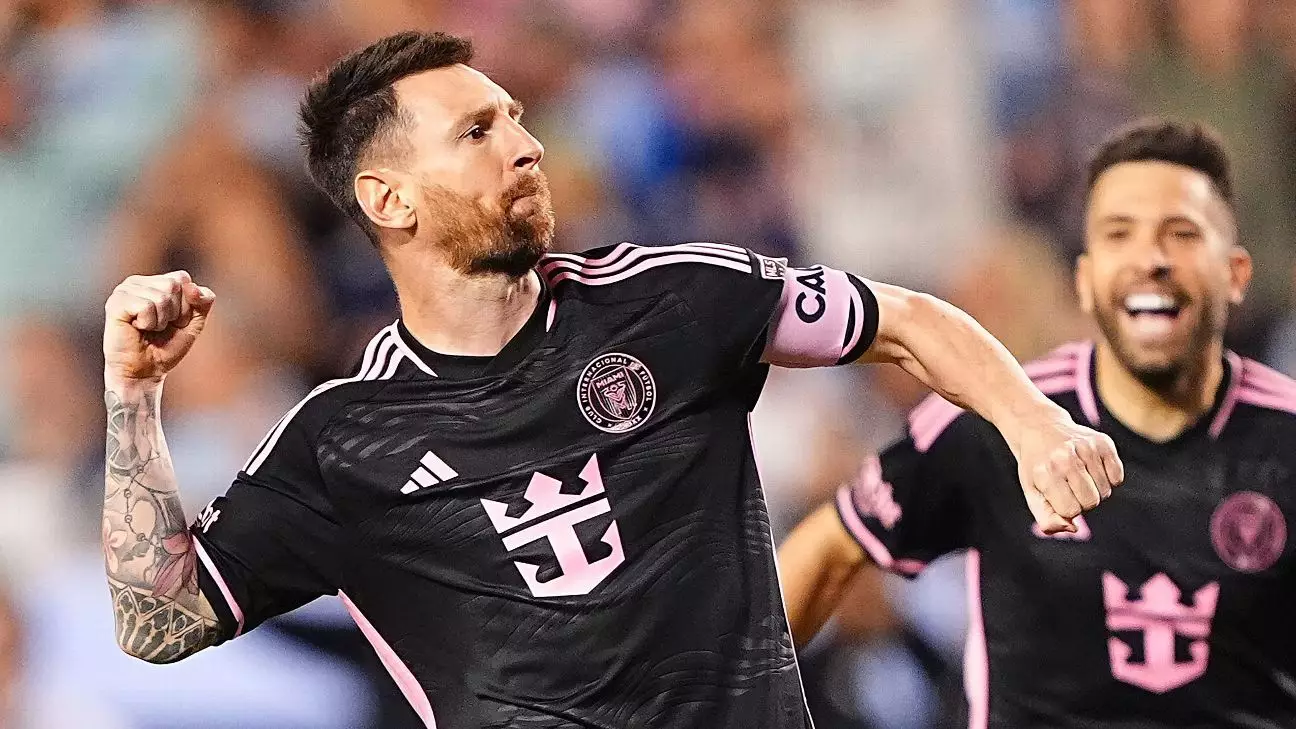In the realm of sports awards, the MVP (Most Valuable Player) accolade often elicits passionate debates that revolve around the subjective interpretation of “value.” The arguments can range from defining the best player in the league to acknowledging the athlete with the most significant influence on team success. The recent announcement that Lionel Messi has won the MLS Landon Donovan MVP award has reignited these discussions, making it a prime case study in evaluating value through diverging lenses.
The definition of MVP varies immensely from one observer to another. For some, the title is reserved for the player with the most outstanding individual statistics, while others prioritize contributions to team success. This ambiguity fuels the discourse around Messi’s win—was it based solely on his performances, or was his presence vital in transforming Inter Miami into a formidable force in the league? This dilemma raises foundational questions: Is the MVP merely the top performer, or does it hinge on elevating a team to new heights?
Messi’s performance statistics undeniably offer a compelling case. During the 2024 MLS season, he topped the charts with 36 goal contributions, including 20 goals and 16 assists. His effectiveness translates to an astonishing average of 2.18 goal contributions per 90 minutes played. By comparison, his closest competitors, Luciano Acosta of FC Cincinnati and Portland’s Evander, mustered 33 contributions. Yet, while statistical brilliance is commendable, it can be misleading when evaluating the overall impact of a player.
One substantial critique against Messi’s MVP candidacy arises from his limited availability throughout the season. Messi participated in only 19 of Miami’s 34 regular-season matches, starting in just 15 and accumulating 1,486 minutes on the pitch. This roughly translates to only 55.8% of available games played, far below historical MVP standards in other sports. For instance, John Elway was featured in 80% of his games during his MVP-winning season, while George Brett played in 72.2%.
This raises an essential question: Should Messi’s ability to generate tremendous contributions in limited appearances be lauded or criticized? The data reveals a stark shift in Miami’s performance with and without Messi on the field. In matches he played, the team’s record was an impressive 12 wins, 6 draws, and only 1 loss. They averaged 2.7 goals per game and maintained a formidable possession rate. In contrast, Miami’s record without him was less staggering at 10 wins, 2 draws, and 3 losses, averaging 1.9 goals per game. While it’s evident Miami thrived with Messi, the performance without him still showcased a competitive edge.
Despite these numbers, the assertion that Inter Miami was poised to succeed without Messi warrants scrutiny. If we consider alternate scenarios, could Miami still have contended for the Supporters’ Shield? Upon examination, even without Messi, Miami would have secured 72 points, nearly clinching the title. Therefore, it sparks debate over whether Messi’s contributions were indispensable or if Miami’s collective talent would have sufficed, albeit at a reduced level.
It’s also crucial to understand the effect Messi’s mere presence had on the team’s recruitment and the broader league. His star power catalyzed the arrival of other sports luminaries like Sergio Busquets and Luis Suárez, elevating Miami’s status to one of the league’s elite teams. In this context, Messi’s gravitational influence cannot be overlooked. However, does this impact contribute to his MVP credentials, or does it create a convoluted scenario that should not affect voting?
Messi’s signing didn’t just create excitement on the field; it generated substantial financial windfalls for both Inter Miami and Major League Soccer (MLS) as a whole. Increased sponsorship deals, ticket sales spikes, and boosted subscriptions through platforms like Apple TV followed his arrival. While these commercial factors shouldn’t dictate MVP awards, they inherently color perceptions of Messi’s value within the league landscape.
Moreover, the competition for the MVP did not offer a strong challenge. While players like Christian Benteke and Evander delivered impressive performances, they lacked the overall contribution and influence that Messi exhibited. The simple truth remains: Messi operated on a different level, even when compared to standout performances from other competitors.
Ultimately, the question of whether Messi deserves the MVP title merges statistical prowess with intrinsic dynamics of leadership and influence within a team framework. While he did not play the most games, his staggering contributions, impact on team structure, and drawing power for the league cannot be discounted. Thus, while his win can be analyzed through various prisms, it stands as a testament to the complex narrative of sport where stats intersect with broader definitions of value. In the end, Messi is more than just the MVP; he represents a significant turning point for both his franchise and the entire league.

Leave a Reply